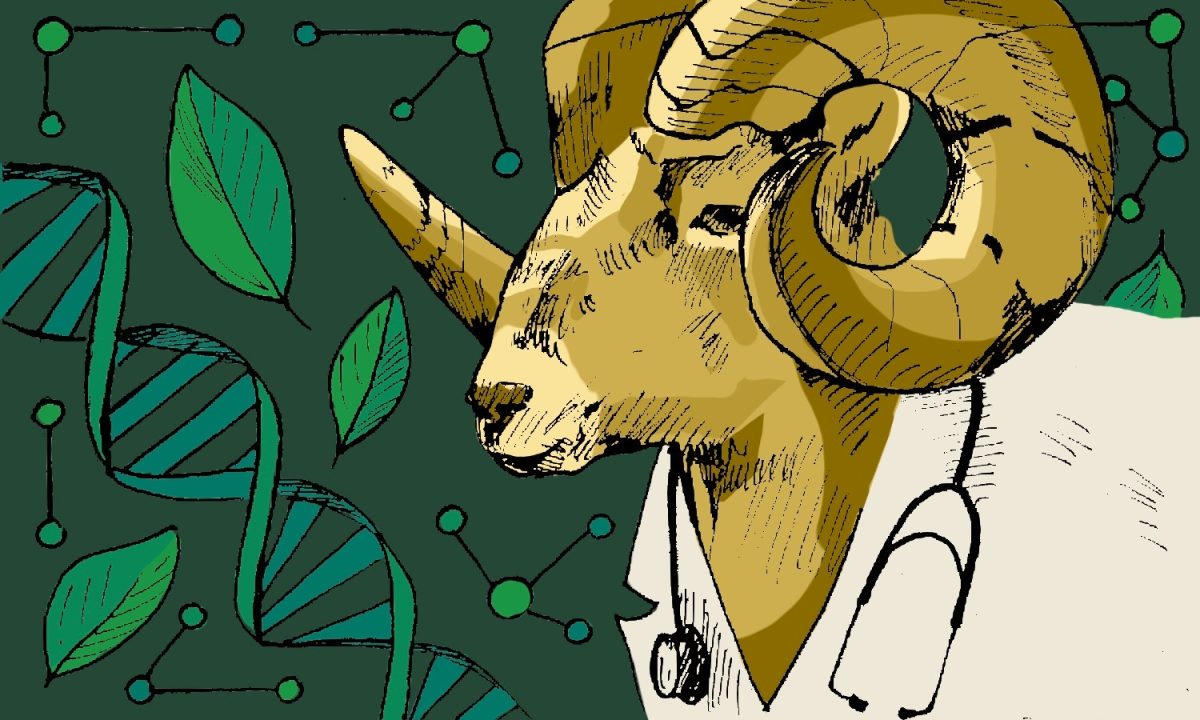In a bout of happy news for breweries, research conducted at Colorado State University indicates that hops do not require a vernalization period as previously thought.
Bill Bauerle, who leads the research, studied at CSU for his undergrad in the horticulture department in the ’90s. Now a professor in the department and a self-proclaimed “craft beer lover,” Bauerle discovered that hops do not need to go dormant thanks to LED lighting systems at the CSU Horticulture Center.
The lighting systems, courtesy of a partnership with Philips Lighting, are capable of simulating ideal growing conditions year-round, which made the discovery possible since those growing conditions don’t naturally exist.
“Hops are very photoperiod sensitive,” Bauerle said. “If they don’t have enough daylight, they go dormant.”
Most of the nation’s hops come from the Pacific Northwest, with Washington alone producing over 75% of the nation’s hops; Idaho and Oregon follow, and Colorado ranks as the seventh biggest producer of hops in the country, Bauerle said.
Bauerle explained that the latitude and climate in the Pacific Northwest makes it easier to yield a larger quantity of hops. In places such as Washington and British Columbia, which sit at roughly 48 degrees and 54 degrees latitude, respectively, days become much longer at the summer solstice. For instance, British Columbia experiences roughly 17.5-hour days at the summer solstice, Bauerle said.
“Washington has a full extra hour for photosynthesis,” Bauerle said.
It was previously understood that hops require a vernalization period, which is a sort of dormancy in which certain crops reset themselves during the cold winter conditions. Hops have roughly a 90-120 day cycle, which Bauerle called the “complete life cycle of a crop.” This meant that under natural conditions, hops could be grown for one cycle a year.
“(From) field production, (the) higher side of things would be about 1-2 pounds of dry hops per cycle,” Bauerle said.
However, Bauerle’s research shows that hops can be grown year-round using the indoor research facility and state-of-the-art LED lighting systems.
With the new discovery, it’s possible to yield four cycles of hops each year.
Bauerle said this is important to him because the research expands a market for beer, including craft beers previously available only seasonally or in low quantities. He made the distinction between high-yield hops like “Columbus” and “CTZ” as opposed to low-yield hops such as “Saaz.”
Because low-yield hops are harvested in smaller quantities, producers of low-yield beer can charge higher prices due to the supply, Bauerle said. So, the ability to grow four cycles a year makes the market bigger and would probably increase profits.
Bauerle also said the discovery creates new opportunities for wet, or fresh, hopped beers.
Traditionally, wet hopped beers are only produced right at the time of harvest, resulting in beer festivals such as Oktoberfest. These beers are available in short supply and have many different flavor profiles, Bauerle said.
Using the proper technology, however, companies could produce the once-seasonal wet hopped beers multiple times a year, and Bauerle said companies could charge a higher premium because of the demand for it and the flavor profiles. It also expands profits for the United States because wet hops can’t be imported.
“It can’t be shipped off to Mexico because it oxidizes after 48 hours,” Bauerle said.
In other words, hops begin to rot and get “off-flavors” after 48 hours, so the only option for transportation is expensive air freight.
Bauerle said his research has been ongoing since January 2016, when he received his first crops after building for the Horticulture Center wrapped up in October 2015. Bauerle has primarily worked with hops at the Horticulture Center, even selling some of the hops produced to local breweries.
Bauerle collaborated with two breweries in the past, one of which was Rally King Brewing, a Fort Collins brewery that has been open since 2015, according to the brewery’s website.
The other was Odell Brewing Company, which opened in 1989 out of an old grain elevator, according to the brewery’s website. Odell is now the 23rd largest craft brewery in the country, according to the website.
Hemp, which is now nationally legal, is Bauerle’s next research venture, and he said although CBD is “the big moneymaker,” research would impact the production of hemp clothing and canvas.
Noah Pasley can be reached at news@collegian.com or on Twitter @PasleyNoah.












